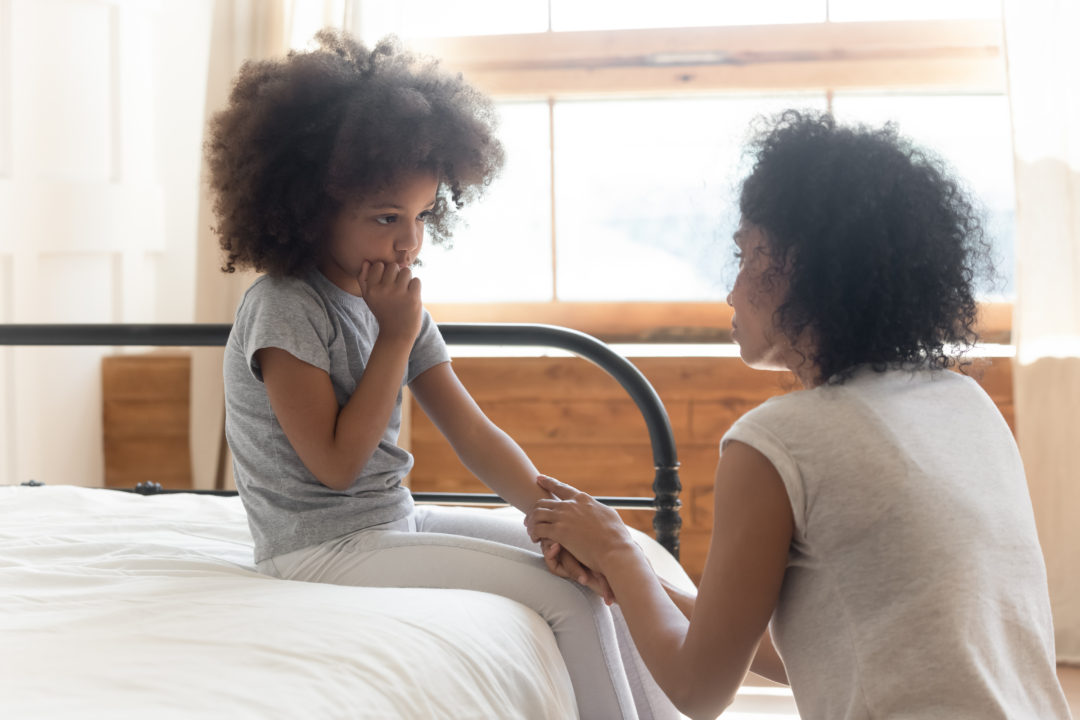Telling your kids that you are separating is probably one of the hardest things you will ever have to do. The news of parental separation can be difficult for your kids to accept and it will take time to adjust to the change.
For your child, this can be a period of grief and confusion, and they could be scared of the unknown and wondering what’s going to happen to them and to their lives. Your child might be angry, sad, and confused.
Here are ten tips on how how to break the news of your separation to your kids and how you can support your kids to help them cope with the news.
1. Speak to a professional and do your research.
A good idea is to speak to a child psychologist on the best way to break the news of your separation to your kids. The best way to tell them, and how much information you give, will vary according to their age.
There are also some really great children’s books and picture books on separation and divorce and different families, and how everybody is different and everybody’s families are different. So it’s worthwhile having a look to see if you can get a couple of those. Check these out as a starting point.
2. Reassure your child.
The most important thing is to reassure your child that you and their other parent will continue to love them more than anything. Reassure them that the breakup is in no way their fault.
Tell your child that you and their other parent are still going to be friends, that you still love each other (but just in a different way), and that you will still always be a family.
3. Tell them you’re all in it together.
Let your child know that you are also in the same boat as them when it comes to uncertainties – there are things you don’t know… it is a learning process for everyone. You can tell them that life may be a bit challenging for everyone at first. But over time, you’ll figure it out together, and things will get better. And in the long run, they will have two parents who are much happier and much better parents.
4. Pick your timing.
Try to avoid telling your child when you’re feeling really emotional. It’s okay to cry throughout the separation process, and for your kids to see you are sad. You can talk through it together as these things come up. But try to stay strong and don’t let them see you fall apart when you initially tell them.
Breaking the news right before bedtime is probably not the best time. Nor is it best to do it on a weekday when they’re about to go to school. I think a weekend is ideal. And if you tell them on a Saturday morning, for example, you can plan something really fun for the rest of the day to help cheer them up a bit.
Something small, but something else that might cheer them up a bit is letting them know that moving forward, they’ll have two of everything: two houses, two bedrooms, two sets of toys, two sets of clothes, etc.
5. Don’t put your kids in the middle.
Never shift the blame to the other parent. Blaming the other parent, or coming across as a victim, may make your kids feel that they’re in the middle and that they have to pick a side.
Similarly, don’t ask them to do things like hide things from their other parent or to keep secrets from them. And if you’ve been the one who has wanted to stay in the relationship, never ask your kids to please tell daddy to come back or that sort of thing. It’s not fair or easy for the children to put them in the middle.
If possible, tell your child together with their other parent; it helps you to both come across as a unit. Remember, it’s not about you and who may have or not have done something. It’s about helping support your kids.

6. Let the conversation be a two-way street.
It’s not just about you doing the talking. Ask them, whilst you are speaking – Do you have any questions? Is there anything you want to ask me/us? Make sure it’s really a really open conversation so that they feel that they can ask you anything and if they want to cry, you can cry together and just take it really slowly.
7. Don’t give them false hope.
Don’t give your kids false hope that you might get back together with their other parent. I think you should really only be telling them once you’re sure that that’s it. Saying things like – Maybe one day we can work it out, or Maybe one day we’ll get back together is not in their best interest. If you know that is not going to happen, don’t tell them that.
8. Know that it may take time to sink in.
For most children, news of separation may take some time to sink in. Some children don’t really understand the repercussions of a separation straightaway. So they might react in quite a casual or unexpected way until later.
Or your child might become really clingy and that could go on for weeks and months, so it’s important to be mindful that they might need lots more cuddles, and they might need lots more attention.

Or they might need some space after they hear the news. Every child is different. Be mindful that you may have to deal with some negative behaviors. And you might need to be a little bit more lenient on certain behaviors for a little while.
9. Maintain their routine.
After a while, it’s a good idea to try to maintain your child’s routine as much as possible. Children thrive on routine, and if they feel they are thrown out of whack then it’s going to be harder for them to deal with and process. You may also want to consider having your child speak to a child psychologist to help them process and cope with the news.
10. Inform your child’s carers.
After talking to your child, inform your child’s carers (such as their daycare teachers or their teachers at school) what’s happened so they are aware of what’s going on and so you are all on the same page. You’re probably going to want them to keep an eye on your child and get some information from them about how your kids are coping at daycare or school during this period of transition.
It’s not going to be easy and everyone will experience the transition differently. It may affect your child in the years to come, but be kind to yourself, do your best, and everything will work out for the best.
P.S DID YOU KNOW?
Thrive Tribe – the global membership experience for single mothers – will be opening again for enrolment soon. Join the waitlist here.

Know someone who needs to read this? Share it with them via the links below.
